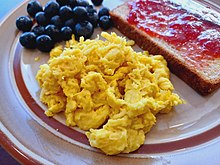
Mayonnaise, colloquially referred to as "mayo", is a thick, cold, and creamy sauce commonly used on sandwiches, hamburgers, composed salads, and French fries. It also forms the base for various other sauces, such as tartar sauce, fry sauce, remoulade, salsa golf, ranch dressing, and rouille.

A meat alternative or meat substitute, is a food product made from vegetarian or vegan ingredients, eaten as a replacement for meat. Meat alternatives typically approximate qualities of specific types of meat, such as mouthfeel, flavor, appearance, or chemical characteristics. Plant- and fungus-based substitutes are frequently made with soy, but may also be made from wheat gluten as in seitan, pea protein as in the Beyond Burger, or mycoprotein as in Quorn. Alternative protein foods can also be made by precision fermentation, where single cell organisms such as yeast produce specific proteins using a carbon source; as well as cultivated or laboratory grown, based on tissue engineering techniques.

Cultured meat, also known as cultivated meat among other names, is a form of cellular agriculture where meat is produced by culturing animal cells in vitro. Cultured meat is produced using tissue engineering techniques pioneered in regenerative medicine. Jason Matheny popularized the concept in the early 2000s after he co-authored a paper on cultured meat production and created New Harvest, the world's first non-profit organization dedicated to in-vitro meat research. Cultured meat has the potential to address the environmental impact of meat production, animal welfare, food security and human health, in addition to its potential mitigation of climate change.
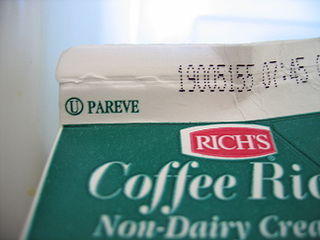
In kashrut, the dietary laws of Judaism, pareve is a classification of edible substances that contain neither dairy nor meat ingredients. Food in this category includes all items that grow from the ground, fish, eggs, and non-biological edible items.
In the United States, a commodity checkoff program promotes and provides research and information for a particular agricultural commodity without reference to specific producers or brands. It collects funds through a checkoff mechanism that is sometimes called checkoff dollars, from producers of a particular agricultural commodity and uses these funds to promote and do research on that particular commodity. As stated earlier the organizations must promote their commodity in a generic way without reference to a particular producer. Checkoff programs attempt to improve the market position of the covered commodity by expanding markets, increasing demand, and developing new uses and markets. Checkoff programs amount to $750 million per year.

A&W is a fast-food restaurant chain in Canada, franchised by A&W Food Services of Canada, Inc.
The American Egg Board (AEB) is a United States checkoff marketing organization, which focuses on marketing and promotion of eggs for human consumption. The AEB is best known for its long-running slogan, "The Incredible, Edible Egg", and the Just Mayo scandal.

Josh Balk is an American activist, currently serving as CEO of The Accountability Board, which he co-founded. Previously, he was vice president of farm animal protection for tbe Humane Society of the United States (HSUS) farm animal division. In addition, he is a cofounder of Eat Just, a food technology company. Prior to working with HSUS and founding Eat Just, he was known for his work at Animal Outlook. Balk is best known for leading successful legislative campaigns for farm animals, along with his work with food companies in enacting animal welfare policies that include eliminating gestation crates for breeding pigs and battery cages for chickens. He is also known for his work with the food industry to shift its focus onto plant-based foods.
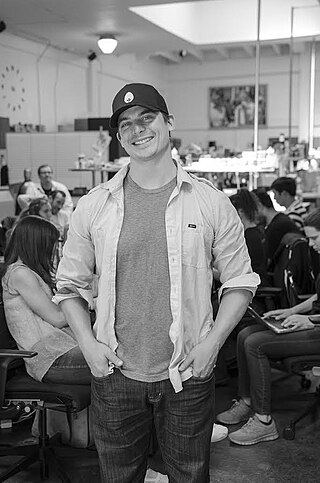
Joshua Stephen Tetrick is an American social entrepreneur and speaker. He is currently the CEO of JUST, Inc., a food startup company based in Northern California.

Egg substitutes are food products which can be used to replace eggs in cooking and baking. Common reasons a cook may choose to use an egg substitute instead of egg(s) include having an egg allergy, adhering to a vegan diet or a vegetarian diet of a type that omits eggs, having concerns about the level of animal welfare or environmental burden associated with egg farming, or worries about potential Salmonella contamination when using raw eggs. There is a growing movement to address some of these concerns via third-party certifications, but because many labels in the industry remain confusing or intentionally misleading, some consumers distrust them and may use egg substitutes instead.
Just Mayo is an egg substitute mayonnaise-like produced by Eat Just, Inc, formerly known as Hampton Creek. Just Mayo was first released in Northern California Whole Foods Markets on September 19, 2013. Just Mayo comes in original, wasabi, truffle, sesame ginger, garlic, chipotle and sriracha flavors. It has been described as "a vegan spread that has rattled the egg industry."

Upside Foods is a food technology company headquartered in Berkeley, California, aiming to grow sustainable cultured meat. The company was founded in 2015 by Uma Valeti (CEO), Nicholas Genovese (CSO), and Will Clem. Valeti was a cardiologist and a professor at the University of Minnesota.
This page is a timeline of major events in the history of cellular agriculture. Cellular agriculture refers to the development of agricultural products - especially animal products - from cell cultures rather than the bodies of living organisms. This includes in vitro or cultured meat, as well as cultured dairy, eggs, leather, gelatin, and silk. In recent years a number of cellular animal agriculture companies and non-profits have emerged due to technological advances and increasing concern over the animal welfare and rights, environmental, and public health problems associated with conventional animal agriculture.
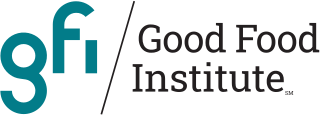
The Good Food Institute (GFI) is a 501(c)(3) nonprofit organization that promotes plant- and cell-based alternatives to animal products, particularly meat, dairy, and eggs. It was created in 2016 by the nonprofit organization Mercy For Animals with Bruce Friedrich as the chief executive officer. GFI has more than 150 staff across six affiliates in the United States, India, Israel, Brazil, Asia Pacific, and Europe. GFI was one of Animal Charity Evaluators' four "top charities" of 2022.
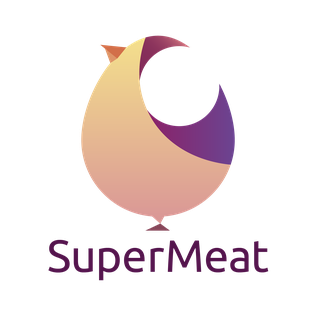
SuperMeat is an Israeli startup company working to develop a "meal-ready" chicken cultured meat product created through the use of cell culture.
Cellular agriculture focuses on the production of agricultural products from cell cultures using a combination of biotechnology, tissue engineering, molecular biology, and synthetic biology to create and design new methods of producing proteins, fats, and tissues that would otherwise come from traditional agriculture. Most of the industry is focused on animal products such as meat, milk, and eggs, produced in cell culture rather than raising and slaughtering farmed livestock which is associated with substantial global problems of detrimental environmental impacts, animal welfare, food security and human health. Cellular agriculture is a field of the biobased economy. The most well known cellular agriculture concept is cultured meat.
ProVeg Nederland, known as Viva Las Vega's (VLV) from 2011 to 2017, is a Dutch foundation that aims to accelerate the transition towards a plant-based food system. The foundation's stated goal is to make it easier for consumers to eat plant-based more often and also to help companies address the growing demand in plant-based products. ProVeg Nederland is a member of the international ProVeg International.

NotCo is a unicorn Chilean food-tech company producing plant-based alternatives to animal-based food products. NotCo was founded in 2015 by Matias Muchnick, Karim Pichara and Pablo Zamora, and utilizes machine learning to replicate dairy products in plant-based forms. NotCo is Latin America's fastest growing food company.

Believer Meats, from 2018 to 2022 known as Future Meat Technologies, or Future Meat for short, is a biotechnology firm which produces cultured meat from chicken cells and is working on cultured lamb kebabs and beef burgers. Based in Israel, its main office is located in Jerusalem, while its primary production facility is operating in Rehovot. Future Meat Technologies mainly seeks to supply hardware and cell lines to manufacturers of cultured meat rather than directly selling food products to consumers. In November 2022, Future Meat Technologies rebranded to Believer Meats.




